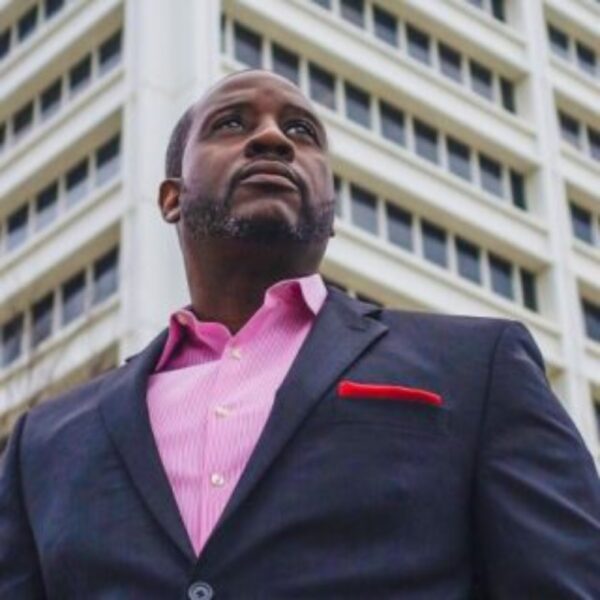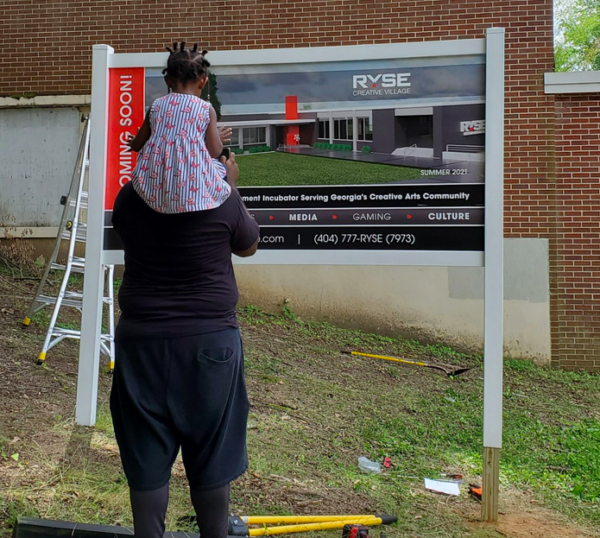A former school building in Southwest Atlanta is being converted into a production hub to serve creatives connected to the film and television industry. The multi-phase project is slated to cost an estimated $30 million, with construction to begin in January 2023. The first phase is set to be completed in late spring.

“Everyone loves the culture of Atlanta,” Jay Jackson founder of RYSE tells Finurah. “When you come the talent is fragmented. We wanted to create a hub that will curate a space they can collaborate.”
RYSE, a media marketing company, stands for Recognizing Young Successful and Empowered.
About RYSE Creative Village
Jackson launched another brainchild, RYSE Creative Village, after working with creatives within the Atlanta area.
“There’s an opportunity to create an ecosystem and build out an ecosystem that could curate a lot of talent,” Jackson said. “We can be kind of a hub for emerging talent and help them get connected to those greater opportunities.”
According to the Georgia Council for the Arts, creative industries account for $37 billion in revenue and create 200,000 jobs. Overall, television, film production and other creative industries contribute an estimated $62.5 billion to the Georgia economy.
Jackson intends for RYSE Creative Village to contribute while also supporting people within the various creative industries to build stronger relationships with other businesses in the area.
Tyler Perry Studios, for instance, is less than one mile away, while Black Hall Studios and Electric Owl Studios are also nearby.
“We are building relationships with those big studios so that we can ultimately create a pipeline for talent, Jackson said, “especially diverse talent.”

On The Rise
In 2011, Jackson was an established entrepreneur with experience in the real estate industry. While speaking at local colleges, Jackson realized that young people desired stories of hope and resilience. This prompted Jackson to launch RYSE, a business dedicated to supporting young professionals in committing to personal and professional development. The company rolled out RYSE magazine and various events promoting young professionals within their target market. Soon, Jackson partnered with brands such as Pepsi and State Farm to develop marketing campaigns targeting upwardly mobile Black Americans. Within five years of RYSE being rolled out, Jackson was relocating to Georgia.
“We wanted to expand upon what we were doing in a bigger market,” Jackson said. “The socioeconomic status in Atlanta is higher.”
Today, Jackson and RYSE are supporting the revitalization of Southwest Atlanta with Creative Village. After purchasing an elementary school that had been abandoned for almost 18 years, Jackson has laid out plans for a production hub and creative co-working space. Later phases of the project will include an apartment complex.
“Southwest Atlanta has a history for entertainment,” Jackson said. He describes it as an “area going through revitalization” and a “creative corridor … an exciting thing to be a part of.”
Strategic Partnerships Lead to Success
The magnitude of RYSE Creative Village could not be sustained only through Jackson’s vision.
Jackson has partnered with institutions such as Georgia Minority Business Development Agency, Georgia Tech and Georgia Department of Economic Development to gain support from ideation to development while Warner Music Group is partnering as a financier.
“It’s an innovative and unique project,” he said. “The right strategic partners give you credibility and resources to make it happen.”




